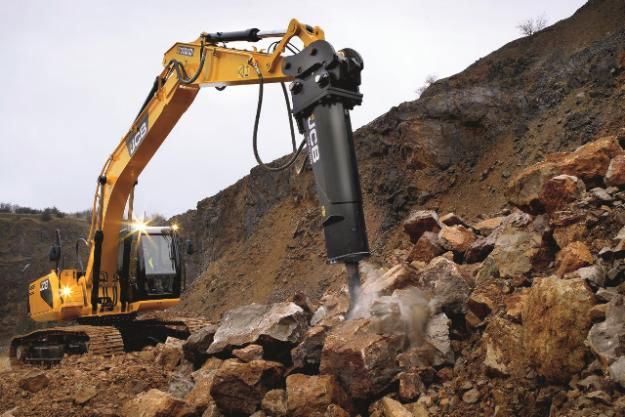Industrial Lancaster Trenching - Trenching Services for Services in Lancaster
Industrial Lancaster Trenching - Trenching Services for Services in Lancaster
Blog Article
Comprehensive Excavation Strategies: Grasping the Fundamentals for Success
In the world of construction and civil design, the value of effective excavation methods can not be overstated. The cautious preparation, exact execution, and meticulous interest to detail needed in excavation jobs require a thorough strategy that includes various basic elements. From first soil evaluation to the implementation of precaution and regular development surveillance, grasping these core components is essential for attaining success in any kind of excavation venture. The real mastery exists not simply in recognizing these basics yet in flawlessly incorporating them to browse the complexities of excavation jobs with skill.
Recognizing Excavation Task Planning

Effective excavation jobs are developed on the structure of complete and precise planning. The preliminary phase of any kind of excavation task is the planning stage, where crucial decisions are made that can substantially influence the end result of the task. Throughout this phase, it is necessary to collect all relevant info about the site, including topographical studies, soil make-up, and any type of potential threats that may exist. Recognizing the project budget plan, timeline, and extent constraints is essential for developing a detailed excavation strategy that ensures the job's success.
One trick facet of excavation job preparation is the growth of an in-depth timeline that lays out the sequence of turning points, target dates, and tasks. By meticulously thinking about all these factors during the preparation stage, excavation tasks can be implemented successfully and effectively, leading to effective end results - septic ohio.
Soil Analysis and Site Assessment
Carrying out detailed dirt analysis and website assessment is a vital action in the prep work stage of any kind of excavation job. Dirt evaluation includes identifying the make-up, structure, and properties of the dirt at the excavation website. This info is vital for recognizing the dirt's bearing ability, moisture web content, and possibility for disintegration, which are crucial consider determining the excavation techniques and tools required for the task.
Site analysis exceeds dirt analysis and includes a more comprehensive evaluation of the total site problems. This evaluation includes determining any type of potential threats, such as underground energies, ecological concerns, or unsteady terrain, that might impact the excavation procedure. By extensively examining the site, job managers can develop reliable excavation methods that prioritize security, effectiveness, and ecological protection.
Making use of advanced innovations like ground-penetrating radar, soil sampling, and drone studies can boost the accuracy and efficiency of soil evaluation and site assessment. Spending time and sources in these preliminary steps can eventually save time and protect against pricey hold-ups or difficulties throughout the excavation procedure.
Devices Selection and Application
Efficient excavation jobs count greatly on strategic equipment choice and utilization to make sure ideal performance and productivity. Choosing the ideal devices for the task is crucial in maximizing efficiency and decreasing downtime. Variables such as the sort of dirt, depth of excavation, and project range play a substantial role in figuring out the most suitable tools for the task handy.

In addition to picking the suitable tools, correct utilization is essential to job success. Operators needs to be trained to manage the devices securely and effectively - dump truck companies in ohio. Normal maintenance checks and prompt repair work help avoid breakdowns and make sure regular performance throughout the task
Safety And Security Actions and Laws Compliance
In the world of excavation jobs, focusing on safety procedures and conformity with policies learn the facts here now is critical to making sure a secure and legitimately audio functional environment. Security measures incorporate a variety of practices, consisting of performing complete site assessments, applying correct signage and obstacles, and providing adequate safety training for all employees involved in the excavation procedure. Adherence to policies, such as OSHA needs in the USA, makes sure that the excavation task meets the essential criteria to protect workers, onlookers, and the surrounding atmosphere.

Monitoring Progression and Adjusting Methods
How can predict managers effectively track the advancement of excavation tasks and adapt their techniques accordingly to optimize results? Monitoring progress is crucial for ensuring that excavation tasks stay on track and fulfill target dates. Project supervisors can use various tools and techniques to track progress, such as daily development records, routine site examinations, and progressed surveillance modern technologies like drones and general practitioners tracking systems. By continually keeping an eye on the project's development, supervisors can determine any prospective delays or problems at an early stage and take aggressive steps to address them.

Final Thought
Finally, mastering the basics of detailed excavation approaches is vital for the success of any job. By recognizing project preparation, examining dirt and website problems, selecting ideal tools, complying with security laws, and keeping track of progress, task managers can make sure a smooth and reliable excavation procedure. Applying these anonymous techniques will certainly lead to effective results and decrease prospective dangers or troubles during the excavation project.
The initial phase of any type of excavation job is the preparation stage, where essential decisions are made that can dramatically impact the end result of the job. Understanding the Website job budget plan, range, and timeline restrictions is vital for producing a comprehensive excavation strategy that ensures the project's success.
How can predict supervisors successfully track the innovation of excavation tasks and adapt their strategies accordingly to optimize end results? By closely keeping track of development and being willing to adjust approaches, task managers can enhance the total success of excavation jobs.
By recognizing task preparation, evaluating dirt and site problems, picking appropriate equipment, abiding with security policies, and checking development, task managers can ensure a smooth and effective excavation process.
Report this page